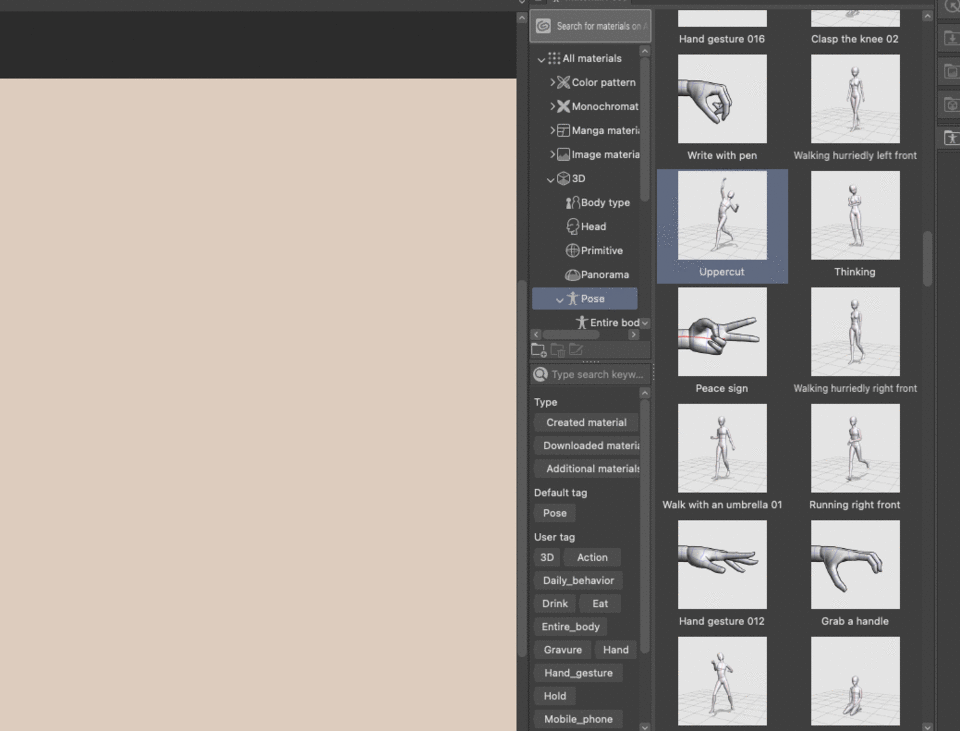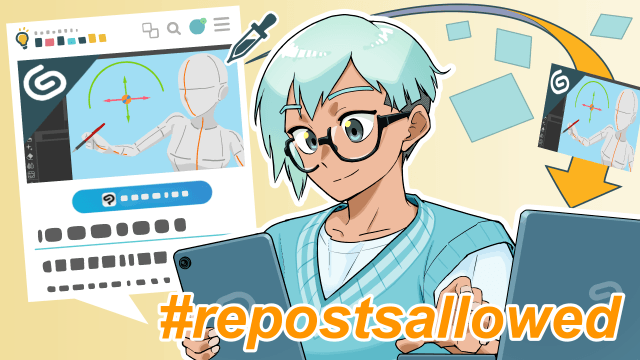Dynamic Poses
Intro
Hello there, this is Tamil. Today I wanted to go over dynamic poses. When I was starting out, a lot of my art was very stiff. I want to share tips on how to overcome it and make your art more dynamic!
Watch my video if you prefer visual learning over reading ~(˘▾˘~)
My socials:
Perspective + Foreshortening
There are many ways you can make your drawing feel more epic. One of the things to consider is playing with perspective.
In photography you can use wide and long lenses. If you can see more in your scene and it feels more like fish eye effect, then it is a wide lens. We can use the same technique when creating our poses and characters.
Poses can be greatly improved by adding perspective. There are many ways you can use perspective:
Lower or lift the camera
Make things close to your much much bigger.
Far objects will be very tiny
Distort proportions to add emphasis ( if the character is punching - make their arms and fists bigger )
What is foreshortening? Very simply, when things start overlapping and starting to be on top of each other. In this example you can see how the right pose feels more "in your face" because a lot of objects overlap.
Image on the left lacks depths, even tho I like drawing that way too! I like simplicity and easy to read poses. So there is no wrong or right way to draw it. Just depends what feeling you want to show in your art.
You can see the most with the arm muscles and hand. Lots of shapes are overlapping and being in front of each other. It's not easy to show it properly when starting out, but a lot of fun once you get used to it.
Don't forget that you can also use Clip Studio Paint 3D models to your advantage! Poses in 3D can be adjusted in terms of camera and angles.

Just drop a model that you find fitting to your scene. You can also pose them yourself.

In the tool property you can see that there is "manga perspective". This will allow us to create a more epic scene. Don't forget that you can also use mouse scroll wheel to change perspective too.
You can also make specific body parts bigger or smaller in the settings panel.
I made a tutorial on how to use 3D models before in case you are interested.
I don't recommend getting into studying dynamic poses with just 3D. A lot of times human body twists more and has many limits. 3D does not do that. It's very hard to get realistic results with posers. Start with photos or even take a pic of yourself.
FORGET Anatomy (kinda)
Anatomy is VERY important. Especially for character design work. I try to learn as much as possible when learning anatomy.
With that said, if you are just starting out, I would say looking for shapes and angles is more important than it is learning anatomy.
Especially for dynamic poses. We bend the anatomy and try to fit it into perspective and different poses. When I was starting out, my biggest problem was spending too much time on muscles and details. It did not help me creating better paintings. It slowed me down.
Left side is me trying to study anatomy. Lots of muscles and proper perspective and details. I think everyone should study them, but what happens when you want to create a dynamic pose? Maybe it's best to simplify and find the flow.
Look for curves and don't focus on all muscles. Focus on SOME muscles. As you can see on the right side, there are many changed that I made to show flow and less muscles. The pose overall feels more lightweight and easy on the character.
I still follow the muscle structure, but I do not try to draw every single one. This comes with time and practice. Think of big shapes first. What are the main curves you can find.
REMEMBER Proportions
I did say that anatomy might not be the most important part, but I think what you really need to think about are proportions! I will definitely make a separate video or tutorial for proportions. The main thing to keep in mind that every person is different, but here are some general proportions to watch out for when sketching dynamic poses.
These are very approximate and depend if you are trying for comic book look or realistic:
Hand is about the size of the face
Foot is about the size of wrist
Shoulders is about the size of 2 heads wide.
Legs are a bit longer than torso + head length.
Half of an arm is usually where rib cage ends.
There are a lot more things that I had to learn to get good proportions. The good thing is that you can always look at references. Just measure distance between each object. From arm to leg. From Hand to torso. Does it look bigger or smaller compared to a reference? If so, try to copy first. Fix it according to your image.
One of the reasons why it's good to use real life references. People are short and tall. Some are wider or slimmer. There is a lot of variety in people, which we can learn a lot from.
Even if you can only do stick figures, try to focus on length of each arm or leg. It's very important to draw close to real life. Again, proportions and flow are more important to convey the pose. Muscles and details will not help you with making better images ( not always at least )
Line of Action
Always start with a line of action. You can always push your pose in the beginning, but it's really hard to make it more dynamic later.
What is action line?
( I know, my nails are ugly xD )
Line of action is a line that can simplify the gesture we are drawing. Lots of artists use it to get a more dynamic artwork.
You can watch my video for a live demonstration. I have sketches lots of images for this tutorial.
As I was mentioning before. It's really good to start with real life images. Where can you find good reference images? When I was starting out, I found "quickposes" website really really useful. It's very easy to find and also if you google it, you will find similar websites for practicing.
A lot of them focus on short time and drawing dynamic poses. I highly recommend doing it at least once a day. Even if it is just for 30 minutes.
Sketching I was making are 90 seconds. I try to keep it short to force myself to focus on the gesture. That will be my last tip. Use real life references and try to draw in short spikes of time. You can start with 30 seconds, then 60 seconds, then more! It depends on how comfortable you feel. They will not look pretty. The point is to simplify and try to get yourself out of the comfort zone.
The end
Thank you for reading. I really appreciate you spending time with me. Hopefully you learned something.
As usual, you can check out more video for more hands on experience. Comment in case you have any specific questions. I try to help people when I can ^-^























Comment